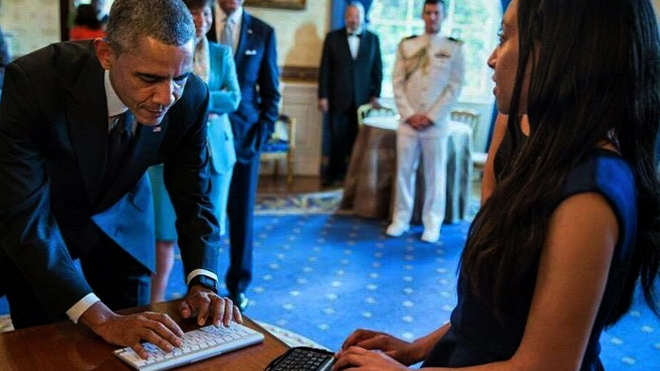Eritrea: Haben’s First Book

Haben Girma, both blind and deaf, is a disability rights advocate and attorney who became the first deaf and blind graduate of Harvard Law School in Massachusetts when she graduated with a Juris Doctor degree (JD) in 2013.
Publishers Weekly reviewed Haben's book, "The Deaf-blind woman who conquered Harvard Law", as follows:
With wit and passion, Haben, a disability rights lawyer, public speaker, and the first deaf-blind person to graduate from Harvard Law, takes readers through her often unaccommodating world.
The Times wrote that the book is "a profoundly important memoir." The Wall Street Journal, People, and the NY Times gave the book a solid thumbs-up. Haben was also featured on The TODAY Show.
Many more book reviewers are showering Haben with accolades. They say that “Haben takes readers through a thrilling game of blind hide-and-seek in Louisiana, a treacherous climb up an iceberg in Alaska, and a magical moment with President Obama at The White House. Warm, funny, thoughtful, and uplifting, this captivating memoir is a testament to one woman's determination to find the keys to connection.”
BTW, who is Haben Girma?
Haben Girma was born deaf-blind in Oakland, California in 1988. Her mother, Saba Gebreyesus, left Eritrea for the Sudan in 1983 during the Eritrean War of Independence. A Catholic resettlement agency helped her move to the United States. Saba met her husband, Girma Kidane Adgoy, in California.

Haben Girma’s work has been featured in the Financial Times, BBC, Washington Post, NPR, and more. Haben, 31, who firmly believes that "technology can bridge the gap for people with disabilities” travels the world to promote accessibility for the disabled. She has earned tributes from the likes Barack Obama, Bill Clinton, Angela Merkel and Justin Trudeau for her efforts to further disability rights.
While her mother and father struggled to cope as immigrants, Haben simply yearned to belong - “a deaf-blind girl in a sighted, hearing world.”

The Helen Keller Influence
Haben's champion is Helen Keller, an American deaf-blind author, political activist, and lecturer. Keller was the first deaf-blind person to earn a Bachelor of Arts degree. Helen's motto in life was that "alone we can do so little; together we can do so much," which attracted the attention of the non-deaf-blind communities around the world.
Haben’s memoir is meant, in part, to fill the gaps in literature concerning the abilities of disabled people. Haben had few literary role models growing up. The scarcity of stories about disabled people, she says, “also denies everyone else a chance to learn what it is like to navigate a world that wasn’t built with them in mind.”

Brother Mussie Gebre
Haben has an older brother, Mussie Gebre, who was born in Asmara during the Dergue era. Mussie, like his sister, is also deaf-blind. He couldn't go to school in Eritrea. Fortunately, he re-joined his mother in the US, and American civil rights laws changed things for him. Finally he started to get an education at age of 12.
Mussie is an activist. To him part of the journey of life is overcoming obstacles, not feeling that nothing is impossible. Technology is mostly designed for people who rely on their sight and their hearing. And that’s what Mussie is determined to change. He travels around California, teaching people with disabilities how to use technology - like the devices that help him and his sister.
Haben defines disability as an opportunity for innovation. “My own life is enhanced through technology,” she says.
“I am adventurous, and my curiosity is my biggest drive in life. It motivates me to find solutions to all my problems, because I want to experience as much as possible,” she says. “I’d rather feel alive than stay cooped up at home and bored.”

How does one communicate with Haben?
It involves typing into a wireless keyboard connected via Bluetooth to a Braille computer that she holds in her lap. She receives the words in real time through mechanical pins that pop up to form letters (“Don’t worry about typos,” she says, “just keep going”). She responds in a voice that is girlishly high-pitched: She can hear high-frequency sounds better than low-frequency ones. She greets many queries with an encouraging laugh.
Easy!
Haben’s book was published on August 6th, 2019 and is available at all major distributors, including her own website: https://habengirma.com/


![[AIM] Asmarino Independent Media](/images/logo/ailogo.png)